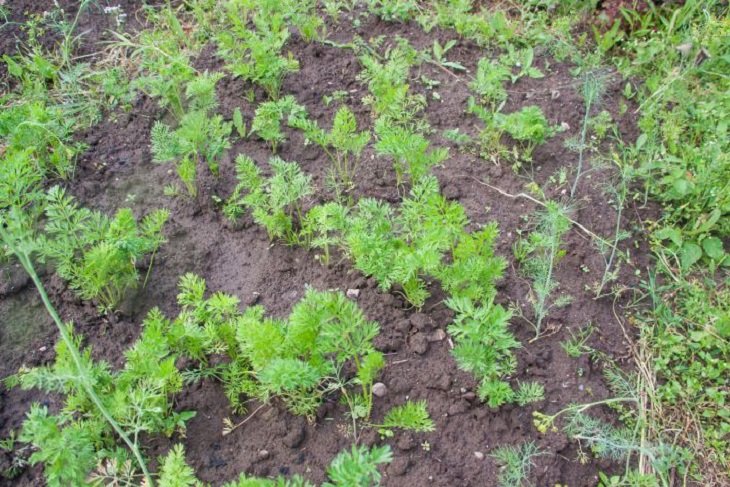Carrot fly will not come near beds that are watered with this solution: a summer cottage trick
In May, carrot flies lay eggs between clumps of soil at the base of young plants.
The fly's egg-laying period lasts up to 50 days. The emerging larvae penetrate the root and make winding, rusty-colored passages in it.
Damaged plants undergo serious changes that do not lead to anything good.
Carrots lag behind in growth, the tops acquire a purple hue, and sometimes die. The fly leaves eggs not only on the carrot bed. The pest also loves parsley, celery, and parsnips.
How to protect carrots from flies
For this case, there is a folk remedy in the gardeners' arsenal. Burdock is dug up with the roots. The plant is crushed and put into a basin. The green mass should be 500 grams.

You need to trample the chopped grass with your feet to get the juice out. Then the greens are poured with 5 liters of water. The liquid is infused for 7 days, and then filtered and diluted with water in a ratio of 1:3.
Before use, add 2 tablespoons of laundry soap to the infusion, and then treat the plantings - water or spray. According to gardeners, the smell of the infusion repels carrot flies, which will fly around the bed and will not lay their eggs on it.
